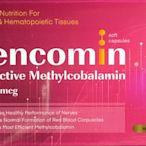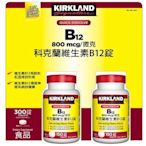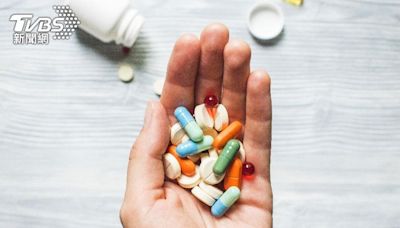搜尋結果
 $1235🏰Dream翔 現貨 全新未拆 神可保 軟膠囊_甲基型維生素B12 維他命 60粒/盒 德國製店名:Dream翔
$1235🏰Dream翔 現貨 全新未拆 神可保 軟膠囊_甲基型維生素B12 維他命 60粒/盒 德國製店名:Dream翔 $348自然之寶維生素B12維他命 鈷胺素 40片 美商NATURE'S BOUNTY QUICK DISSOLVE逆齡奇肌海外代購
$348自然之寶維生素B12維他命 鈷胺素 40片 美商NATURE'S BOUNTY QUICK DISSOLVE逆齡奇肌海外代購 $330GNC Vitamin B-12健安喜維生素B12維他命甲鈷胺素 鈣 1000mcg 90粒素食逆齡奇肌海外代購
$330GNC Vitamin B-12健安喜維生素B12維他命甲鈷胺素 鈣 1000mcg 90粒素食逆齡奇肌海外代購 $598Lovita 愛維他 高單位緩釋型維生素B12(60錠入) 全素食品錠【小三美日】空運禁送 DS015946小三美日旗艦店
$598Lovita 愛維他 高單位緩釋型維生素B12(60錠入) 全素食品錠【小三美日】空運禁送 DS015946小三美日旗艦店![元氣健康館 人生製藥渡邊維他命B12膜衣錠1000μgx60粒/瓶 元氣健康館 人生製藥渡邊維他命B12膜衣錠1000μgx60粒/瓶]() $200元氣健康館 人生製藥渡邊維他命B12膜衣錠1000μgx60粒/瓶元氣健康館
$200元氣健康館 人生製藥渡邊維他命B12膜衣錠1000μgx60粒/瓶元氣健康館![300錠 科克蘭 維生素 B12 錠 800微克 (150錠x2瓶) Kirkland 好市多 維他命 維生素B 300錠 科克蘭 維生素 B12 錠 800微克 (150錠x2瓶) Kirkland 好市多 維他命 維生素B]() $779300錠 科克蘭 維生素 B12 錠 800微克 (150錠x2瓶) Kirkland 好市多 維他命 維生素BY6701935215
$779300錠 科克蘭 維生素 B12 錠 800微克 (150錠x2瓶) Kirkland 好市多 維他命 維生素BY6701935215![BIOCHEM 倍優 香氛密碼 大馬士革玫瑰氨基酸淨白洗卸二用慕絲 升級維他命B12 250ml ARWIN 雅聞 BIOCHEM 倍優 香氛密碼 大馬士革玫瑰氨基酸淨白洗卸二用慕絲 升級維他命B12 250ml ARWIN 雅聞]() $155BIOCHEM 倍優 香氛密碼 大馬士革玫瑰氨基酸淨白洗卸二用慕絲 升級維他命B12 250ml ARWIN 雅聞Y2677639315
$155BIOCHEM 倍優 香氛密碼 大馬士革玫瑰氨基酸淨白洗卸二用慕絲 升級維他命B12 250ml ARWIN 雅聞Y2677639315![Arwin雅聞 大馬士革玫瑰氨基酸淨白洗卸二用慕絲 升級維他命B12 粉瓶下單區 Arwin雅聞 大馬士革玫瑰氨基酸淨白洗卸二用慕絲 升級維他命B12 粉瓶下單區]() $155Arwin雅聞 大馬士革玫瑰氨基酸淨白洗卸二用慕絲 升級維他命B12 粉瓶下單區健康悠遊館
$155Arwin雅聞 大馬士革玫瑰氨基酸淨白洗卸二用慕絲 升級維他命B12 粉瓶下單區健康悠遊館![【元氣一番.com】『人生製藥 』-〈渡邊維他命B12〉 【元氣一番.com】『人生製藥 』-〈渡邊維他命B12〉]() $200【元氣一番.com】『人生製藥 』-〈渡邊維他命B12〉元氣一番.com
$200【元氣一番.com】『人生製藥 』-〈渡邊維他命B12〉元氣一番.com![【三多生技】素寶®素食維他命D3+B12 +S.(硫)膜衣錠(30錠/盒)_超值促免運 【三多生技】素寶®素食維他命D3+B12 +S.(硫)膜衣錠(30錠/盒)_超值促免運]() $1111【三多生技】素寶®素食維他命D3+B12 +S.(硫)膜衣錠(30錠/盒)_超值促免運家適康生活館 台糖特約門市
$1111【三多生技】素寶®素食維他命D3+B12 +S.(硫)膜衣錠(30錠/盒)_超值促免運家適康生活館 台糖特約門市![三多素寶 素食維他命D3+B12+S.(硫)膜衣錠3盒組(30錠/盒)純素食者福音 三多素寶 素食維他命D3+B12+S.(硫)膜衣錠3盒組(30錠/盒)純素食者福音]() $1244$1480三多素寶 素食維他命D3+B12+S.(硫)膜衣錠3盒組(30錠/盒)純素食者福音購物中心折價券
$1244$1480三多素寶 素食維他命D3+B12+S.(硫)膜衣錠3盒組(30錠/盒)純素食者福音購物中心折價券![【元氣一番.com】三多 維他命D3+B12+S 膜衣錠30入◎純素 【元氣一番.com】三多 維他命D3+B12+S 膜衣錠30入◎純素]() $300【元氣一番.com】三多 維他命D3+B12+S 膜衣錠30入◎純素元氣一番.com
$300【元氣一番.com】三多 維他命D3+B12+S 膜衣錠30入◎純素元氣一番.com
Vitamin B12, also known as cobalamin, is a water-soluble vitamin involved in metabolism. [2] It is one of eight B vitamins. It is required by animals, which use it as a cofactor in DNA synthesis, and in both fatty acid and amino acid metabolism. [3]
In molecular biology, the vitamin B12-binding domain is a protein domain which binds to cobalamin (vitamin B12). It can bind two different forms of the cobalamin cofactor, with cobalt bonded either to a methyl group (methylcobalamin) or to 5'-deoxyadenosine (adenosylcobalamin).
B vitamins are a class of water-soluble vitamins that play important roles in cell metabolism and synthesis of red blood cells. [1] They are a chemically diverse class of compounds; some contain sulfur and B12 contains cobalt. [1] Dietary supplements containing all eight are referred to as a vitamin B complex.
Vitamins are organic molecules (or a set of closely related molecules called vitamers) that are essential to an organism in small quantities for proper metabolic function. Essential nutrients cannot be synthesized in the organism in sufficient quantities for survival, and therefore must be obtained through the diet. For example, vitamin C can ...
Pernicious anemia is a disease where not enough red blood cells are produced due to a deficiency of vitamin B 12. [5] . Those affected often have a gradual onset. [5] . The most common initial symptoms are feeling tired and weak. [4] .
Vitamin D deficiency or hypovitaminosis D is a vitamin D level that is below normal. It most commonly occurs in people when they have inadequate exposure to sunlight, particularly sunlight with adequate ultraviolet B rays (UVB).
D014807. Legal status. In Wikidata. Vitamin D is a group of fat-soluble secosteroids responsible for increasing intestinal absorption of calcium, magnesium, and phosphate, and for many other biological effects. [1] [2] [3] In humans, the most important compounds in this group are vitamin D 3 ( cholecalciferol) and vitamin D 2 ( ergocalciferol ).





















